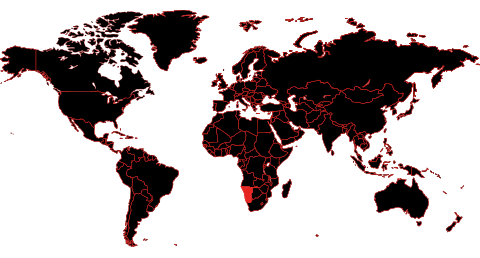Shell’s $400 Million Write-Down: A Setback or a Strategic Move?
When an Oil Boom Hits Reality
There’s a moment in every resource-rich country’s journey when optimism meets the realities of commercial oil production. For Namibia, that moment has arrived.
After months of global excitement about the country’s oil discoveries, Shell has announced a $400 million write-down on one of its Namibian assets. The news has sent mixed signals—some are calling it a major setback, while others believe it’s simply a recalibration of investment strategy.
So what does this actually mean for Namibia? Is the country’s oil future in trouble, or is this just part of the industry’s natural cycle?
Why Shell is Writing Down $400 Million in Namibia
A write-down means that a company has reduced the estimated value of an asset on its financial statements. It doesn’t mean the project is over—but it does mean Shell is reassessing its expectations.
What’s behind this decision?
• Higher Gas Content than Expected – Recent drilling data suggests that gas-to-oil ratios in some blocks are making extraction more complex and expensive.
• Technical and Economic Viability – Shell is conducting appraisal drilling to determine how much oil is actually recoverable. The write-down suggests early projections were too optimistic.
• Shifting Capital Priorities – Global energy companies are adjusting their investment strategies based on market trends, profitability, and project timelines.
This doesn’t mean Shell is leaving Namibia—but it does signal that the company is taking a more cautious approach.
This is Normal in the Oil Industry
A $400 million write-down is significant, but it’s not uncommon in frontier oil exploration.
Similar situations in other regions:
• Guyana – ExxonMobil faced early technical challenges before unlocking the massive Stabroek Block.
• Mozambique – LNG projects were delayed due to cost overruns and security risks.
• Ghana – The Jubilee field had unexpected reservoir issues before full production began.
In all these cases, initial setbacks didn’t stop long-term success. Oil exploration is a high-risk, high-reward industry, and Shell’s decision is part of the normal investment cycle.
What This Means for Namibia’s Oil Sector
Shell’s write-down doesn’t mean Namibia’s oil boom is over—it means the industry is entering a more realistic phase.
A. Oil Companies Will Adjust Their Strategies
• Shell, TotalEnergies, and Galp will continue drilling to refine their understanding of the reservoirs.
• Some discoveries may be developed immediately, while others might be delayed or restructured.
B. Namibia’s Government Must Stay Proactive
• The write-down is a signal for policymakers to ensure investment incentives remain competitive.
• The country should diversify its investor base by attracting interest from other global energy players.
C. This Reinforces the Need for a Gas Strategy
• Since high gas content is one of the reasons for Shell’s recalibration, Namibia should accelerate its gas development plans.
• If gas reserves are significant, the government could fast-track LNG investments to create an alternative revenue stream.
Namibia Must Adapt to the Market
This moment calls for strategic thinking, not panic.
To ensure continued momentum, Namibia should:
Continue Appraisal Drilling – More data is needed to determine the full potential of offshore reserves.
Expand Investor Outreach – Shell’s recalibration opens the door for new energy investors.
Strengthen Midstream Planning – Developing storage, refining, and gas infrastructure will create stability regardless of short-term setbacks.
Shell’s $400 million write-down is a reminder that oil exploration is complex, uncertain, and constantly evolving.But it doesn’t change the fact that Namibia has one of the most promising offshore basins in the world.
The real question is: How will Namibia respond?
Countries that adapt to changing industry realities—by diversifying investment, planning for infrastructure, and staying flexible—are the ones that succeed in the long run.
Namibia’s oil future is still in motion. This is just the next phase in its journey.
Key sources:
•Financial Times (Aug 2023) – Shell Revises Its Offshore Namibia Investment Outlook
•Oil & Gas Journal (Aug 2023) – What Shell’s Write-Down Means for Namibia’s Oil Industry
•Reuters (Aug 2023) – Shell Takes $400M Charge Amid Technical Challenges in Namibia
Earth Day 2025 – Our Power, Our Planet
“Our Power, Our Planet” — the theme of Earth Day 2025 — is not just a rallying cry for envir
Positioning Namibia’s Youth at the Center of Its Energy Future
Namibia stands at a pivotal moment in its national development, faced simultaneously with a signific
What Every Namibian Student and Entry-Level Professional Should Know About the Upstream Oil & Gas Sector
The upstream oil and gas industry in Namibia is no longer a theoretical possibility—it is a rapidl




